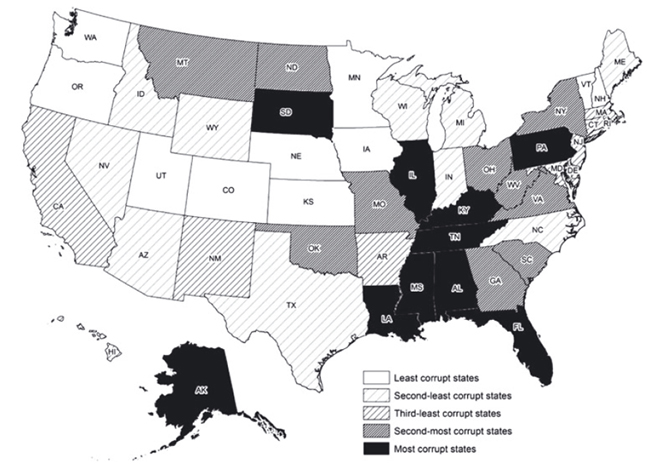
A new academic study helps explain the enduring political popularity of expensive transportation boondoggles like Birmingham's $4.7 billion Northern Beltline and Kentucky's $2.6 billion Ohio River Bridges.
According to research published in the journal Public Administration Review, states with higher levels of public corruption spend more money on highways and construction. The study found highway and construction projects and police programs provide the most opportunities for lawmakers to enrich themselves, according to Governing Magazine, and are positively correlated with state levels of corruption. Meanwhile, highly corrupt states also spend relatively less on health, education, and welfare -- categories that were less susceptible to graft and bribery, the report found.
Public corruption for each state was ranked based on 25,000 convictions between 1976 and 2008. Overall, the authors found, the 10 most corrupt states spend $1,300 more per person annually than the average state.





